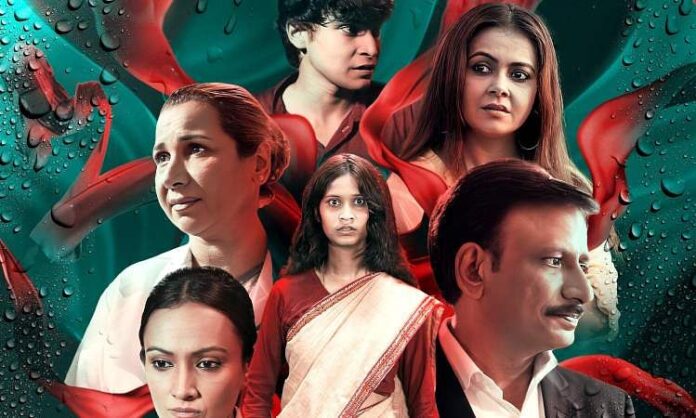Kooki is an effective demonstration of how a raw display of emotions alone cannot make up for a flaccid screenplay. The film introduces us to a 16-year-old girl named Kooki, going through the warm, butterfly-ridden phase of her first love. However, her world is upended following a brutal gang rape and she is left trying to piece her life back together, attempting to make sense of the ‘justice’ meted out to her and the world that allows such a heinous crime to unfold.
Director: Pranab J Deka
Cast: Ritisha Khaund, Rajesh Tailung
The film presents a sensitive issue, raises pertinent questions about society’s part in it, manages to capture the trauma with visceral detailing, and even sheds light on our collective helplessness regarding sexual assault. However, it is neither a cerebral dissection of the issue nor is it a psychological exploration of the survivor it revolves around. To the film’s credit, It does try to do both, by showing characters discussing the issue in a heated debate and with several montages of Kooki going through PTSD symptoms laced with extravagant amounts of melodramatic music. But these debates and psychological musings are painfully unimaginative and simplistic. In one scene, we see journalists talking about what a heinous crime this is and how sadistic the perpetrators are and in another instance, we hear a doctor talk to Kooki’s father about the extent of Kooki’s psychological damage. While these scenes do not serve to move the plot, they also retread points that have been conveyed before in the film. By letting the characters spell out whatever the film wants to convey in the most apparent fashion, Kooki fails to leverage the visual potential of being a film.
What stands in contrast to the above-mentioned lapses are the earnest performances of the central cast members. With the entire weight of the film mounted on the axis of Kooki’s emotional portrayal, Ritisha Khaund effectively conducts her character’s journey from being a wide-eyed teenager brimming with love to being broken down both physically and psychologically by the sheer magnitude of the trauma enacted upon her. Rajesh Tailang, who plays her level-headed father in the film, understands the impact of a measured performance even while his character had all the excuses to display strong emotional outbursts. By managing to reign down his performance, he brings a sense of tonal balance to a story which is already ingrained with heavy emotions. However, the intensity of the performances is quickly drowned and diluted by the low-resolution dialogues. The dialogue keeps reminding you that these are characters in a hurry to convey what the film needs to convey and not real people talking to each other.
Kooki also suffers from chunks of character moments that are not connected to the central narrative but solely remain to overstate how bad the crime is and to display the rage-filled reactions of characters we don’t necessarily care about. The pivotal scene in the film, the gang rape, captures the brutality and violence of the assault with disturbing vividness. The editing and cinematography work in tandem to make sure it is conveyed as an unimaginably cruel assault and nothing less. One could argue that this egregious display is unnecessarily exhaustive and too disturbing for a film but the reality is even more horrific.
Whether to capture disturbing realities through mild suggestive scenes or to capture them in vivid detail, is up to the filmmaker and what they intend to convey by letting us feel the full extent of the brutality. Kooki succeeded in having us shaken to the core but as the film unfolds further, you can’t help but think that perhaps the film has nothing more to offer. At the end of it all, we fail to understand what the film wants to convey; if it wants us to understand how brutal this crime is, then is it such a novel idea that it needed a feature-length presentation to tell us that? With Kooki’s father being a lawyer, and with Kooki’s own interest in the law, the film had ample scope to delve into the morally ambiguous spaces that occupy the justice proceedings in such cases but Kooki never touches upon them.
Kooki manages to register strong emotions but it has nothing much to say. The characters go through a world of trauma but we don’t see them transform or go through an arc. The film rides on raw emotions and convincing performances but with a hollow core, it barely justifies its existence.
#Leans #heavily #emotions #fumbles #storytelling #Cinema #express

